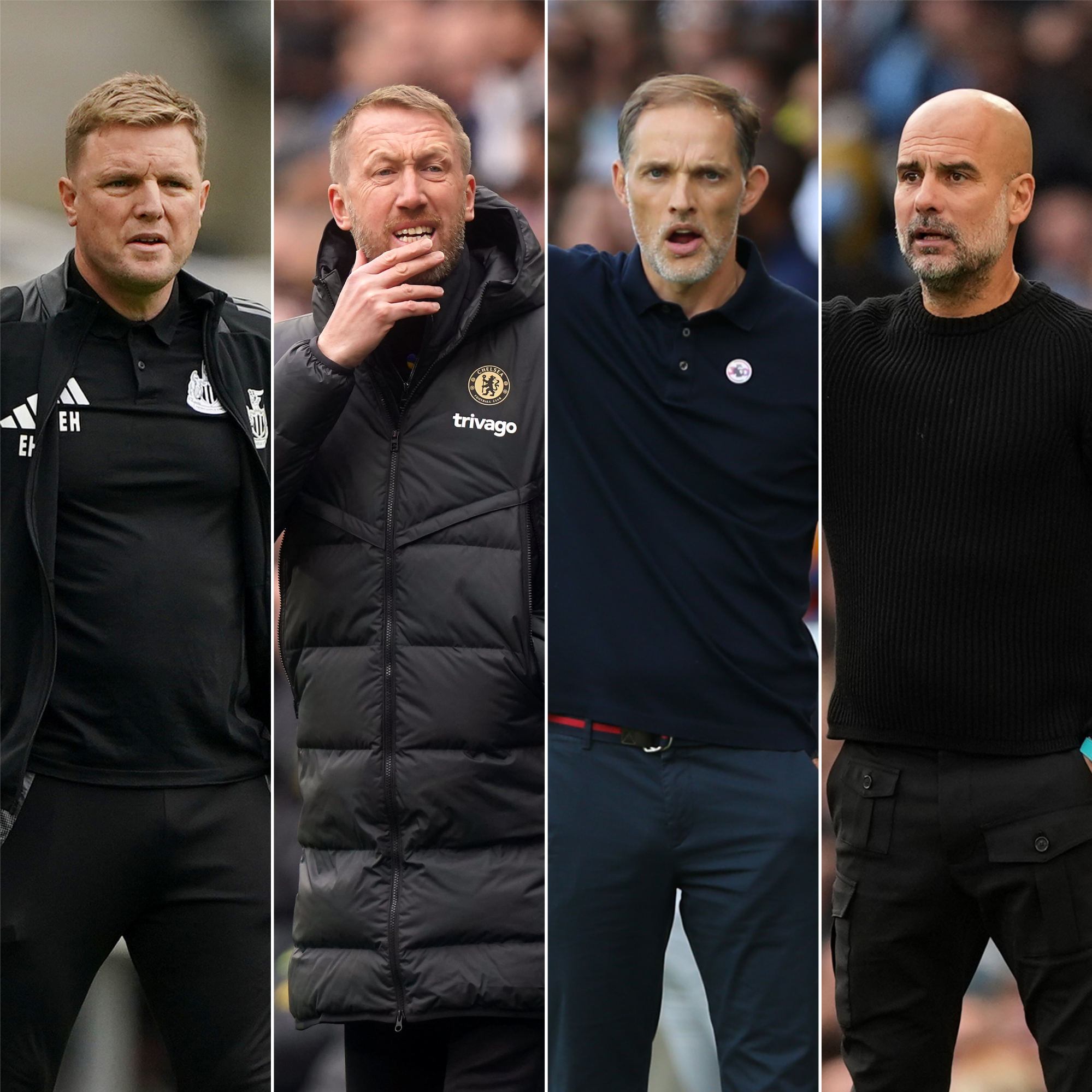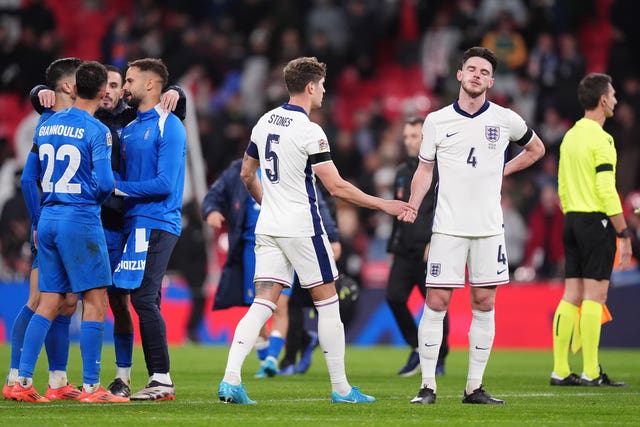England ended the October international window with more questions than answers as the uncertainty over Lee Carsley’s future deepened.
After the Nations League loss to Greece and Sunday’s win in Finland, the PA news agency takes a look at the situation.
Where is the selection process at?
The Football Association is remaining tight-lipped about exactly where it is in the process of finding Gareth Southgate’s permanent successor. It advertised the position shortly after the former manager’s departure – with a closing date of August 2 – and Carsley confirmed on Saturday that he did not formally apply. He was named on an interim basis a week after the deadline, stepping up from his role as England Under-21s boss, initially for the three autumn international windows, intending to buy the FA time to search for the best candidate. But, approaching three months since his exit, we are no closer to knowing who will replace Southgate permanently.
Does Carsley actually want the job?
This is a question that even Carsley probably does not know the answer to and as a result, he has tied himself up in knots with contradictory answers about his future, sometimes from one interview to the next. He came into the job in August saying he had not thought about whether he wanted it permanently before reminding everyone it was a short three-camp mission. But a successful September international break increased his credibility as a candidate and intensified the focus during the October window. A shock 2-1 defeat to Greece at Wembley, where a bold attacking team selection backfired, raised legitimate questions about his capability and he said after the game he was “hopefully” going to go back to his under-21s role. He then revealed he had not formally applied for the job and said in a television interview – after beating Finland 3-1 – that the job should go to a “world-class coach” who has won things, seemingly ruling himself out. However, a matter of minutes later, in his post-match press conference he said that was “definitely not” the case.
Who are the other contenders?

While it has felt that Carsley’s interim position has been an audition, there are several other possible candidates. If the FA want an English manager they could look at Newcastle’s Eddie Howe, who has been initially resistant to any talk of him leaving the north east. Ex-Brighton and Chelsea boss Graham Potter is out of work and would bring a clear philosophy but his ill-fated stay at Stamford Bridge may count against him. Fellow former Chelsea boss Thomas Tuchel is also on the favourites list and would be available to start straight away, having left Bayern Munich in the summer. Perhaps the man the FA want the most would be Pep Guardiola, given the dynasty he has built at Manchester City. Whether that would be a possibility could heavily depend on the outcome of City’s dispute with the Premier League.
What is the state of play going into the November international break?
With all the focus on Carsley’s future it is easy to forget there was some football played and the October break was a damaging one for England in the Nations League. That humiliating defeat at Wembley gave control of Group B2 to Greece, who consolidated their position on Sunday when they beat the Republic of Ireland. It means Greece are three points clear at the top heading into a huge reverse fixture against England in Athens in November. It is simply a must-win game for Carsley’s men and even then, their chances of finishing top of the group will be determined by how England fare against Ireland compared to Greece against Finland.
What are the implications of not winning the group?

If England do not overhaul Greece in the final two games next month, it means they will not win automatic promotion back to League A, which would be a fairly embarrassing failure for a major nation. That will leave them with a two-legged play-off against a third-placed team in League A, with the likes of France, Belgium, the Netherlands or Denmark among those they could possibly meet. It would also delay the start of the 2026 World Cup qualifying campaign to June or September, which, perhaps tellingly, would buy the FA even more time in their search for a successor.

